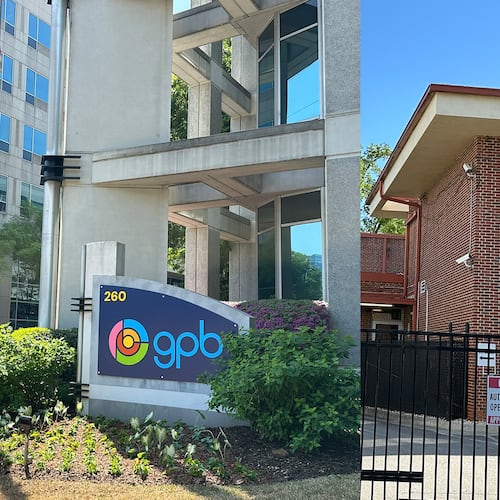After leveling off for a few months this year, metro Atlanta's unemployment rate shot up to 10.5 percent in June from a revised 9.7 percent in May.
Much of the increase was blamed on the labor pool expanding with the addition of 10-month school employees, such as janitors and bus drivers, and recent high school and college graduates, Georgia Department of Labor officials said. The last five years have seen the same seasonal uptick in June unemployment.
Still, the increase in joblessness underscores how badly the economy is struggling to create enough jobs to meet demand.
Economists said metro Atlanta is producing jobs. The area is strong in technology, payment processing and education. Nationally, first-time applications for unemployment benefits fell to the lowest level in four months, according to the U.S. Labor Department. It's a sign that employers are laying off fewer workers.
But there were enough local layoffs last month -- in manufacturing, trade, administrative and support services and health care -- to make the metro area a net job loser. The area's net loss: about 4,600 jobs, the state labor department said.
That nudged the metro area's unemployment rate above 10 percent for the first time since March when it dipped to 9.8 percent.
Economists predict metro Atlanta will be stuck with high unemployment for at least the next three years.
"My advice is that if you have a job to grab on hard and to hold on tight," said said Jeff Humphreys, an economist at the University of Georgia's Terry College of Business.
Melvin Ewing of Peachtree City agrees. Since losing his job as a civil engineer two years ago, he has cobbled together a living as a substitute teacher in Fayette County Schools and cleaning offices for ServiceMaster Clean.
"I'm what you call underemployed," he said. "If you had told me two years ago that I could not find a job in my profession, I wouldn't have believed you."
To survive, Ewing said he has been aggressive. Instead of waiting for the school system to call him when in session, he checks the district website every day to see what's available. He does the same with taking on whatever needs ServiceMaster might have.
"I just wish I could say to people, don't give up," said Ewing, who will interview with the U.S. Environmental Protection Agency for the sixth time next week. "That's stupid."
Unemployed and underemployed metro Atlantans may need to be tenacious for a long time, the economists said.
The problem is that to get the area back on solid footing, at least 6,500 jobs a month would have to be created, said Mark Vitner, senior economist at Wells Fargo.
That's not happening because the area has a lot of jobs in industries that are struggling in the economy, including construction and financial services.
"Atlanta has one of the most diverse economies in the country," Vitner said. "But we had a lot of exposure to industries that were hit hard."
Tom Smith, a labor economist with the Goizueta Business School at Emory University, said he is usually an optimist on the economy, believing recently that things were beginning to get better with the unemployment rate stabilizing.
But now he fears the area could go into a "growth recession," one in which everything looks good on paper -- companies report strong financials and GDP grows -- but employment doesn't increase.
"I am usually the one who is saying, ‘I am very assured,'" he said. "We have a strong, solid base of employers in metro Atlanta who are doing good business. Yet, you still have one of 10 people not working."
June jobs swoon
Metro Atlanta's unemployment rate has spiked in June for the past five years as 10-month school employees, such as janitors and bus drivers, and recent graduates are added to the labor pool.
Year: 2010
Unemployment May: 9.8 percent
Unemployment June: 10.3 percent
Year: 2009
Unemployment May: 9.3 percent
Unemployment June: 10.4 percent
Year: 2008
Unemployment May: 5.6 percent
Unemployment June: 6.2 percent
Year: 2007
Unemployment May: 4.1 percent
Unemployment June: 4.7 percent
Metro Atlanta unemployment rate June 2010-June 2011
June 2010 -- 10.3 percent
July 2010 -- 10.4 percent
Aug. 2010 -- 10.4 percent
Sept. 2010 -- 10.3 percent
Oct. 2010 -- 10.2 percent
Nov. 2010 -- 10.3 percent
Dec. 2010 -- 10.1 percent
Jan. 2011 -- 10.4 percent
Feb. 2011 -- 10.2 percent
Mar. 2011 -- 9.8 percent
Apr. 2011 -- 9.6 percent
May 2011 -- - 9.7 percent
June 2011 -- 10.5 percent
About the Author
Keep Reading
The Latest
Featured


